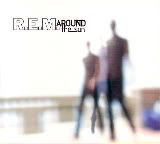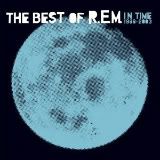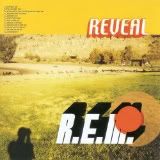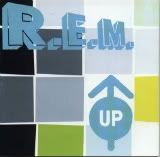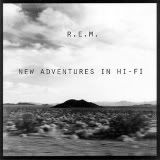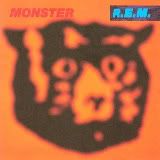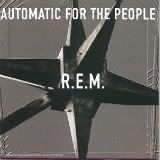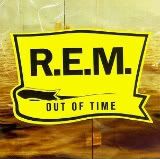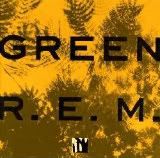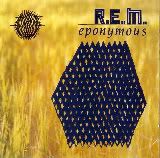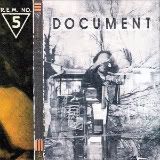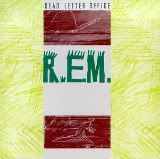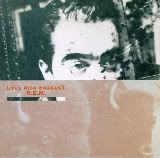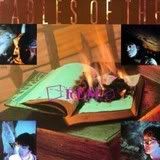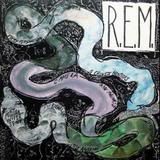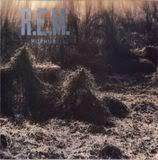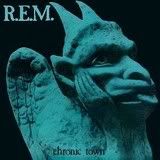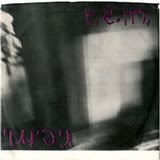Nature Abhors a Vacuum, But What's Between Your Ears?
Almost two months ago, I put myself to the task of looking back and analyzing R.E.M.'s catalogue in preparation for their fourteenth studio album. I think it's pretty evident that I'm a big fan of the group and have been for almost twenty years. Also, this has been an exercise in writing about and critiquing music. Now that I've had the opportunity to listen to Accelerate a number of times, I'm ready to give my views on it.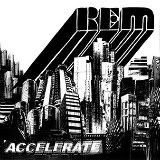 Accelerate - 2008
Accelerate - 2008
Now, that's more like it.
Finally, after a decade of sliding into mediocrity, the R.E.M. trio have finally decided to make a much needed course correction. There are several reasons for Accelerate being the best R.E.M. album in over a decade:
1. R.E.M are back to playing rock music. While Up won points for its experimentation and originality, Reveal and Around the Sun were stale, uninspired, and really boring. Not that I don't like a good ballad or a good pop song, but the operative word here is "good". R.E.M. slows it up a few times on Accelerate, but for the most part it's fast, loud, and crunchy. This record has more in common with Lifes Rich Pageant and Monster than anything else in their catalogue.
2. Since this album is more guitar-based than anything since New Adventures in Hi-Fi, Peter Buck is able to knock out some of his best riffs and licks since Monster. The guitar line that begins the album opener "Living Well is the Best Revenge" feels like the welcome return of an old friend and really sets the pace of the rest of the record. It may lack the sonic experimentation and detail madness of the guitar work on Monster, but it feels more thought out and inspired than his work over the last decade.
3. Mike Mills is back! Not that he ever left, but Mills' backing vocals (an R.E.M. staple) have all but disappeared over the course of the last three albums. Even when he was singing, Mills was mixed down so low that he could barely be heard. Not so on Accelerate. Not only are his vocals present on virtually every song, but he's mixed loud enough on most that he's practically co-singing the choruses with Michael Stipe.
4. Michael Stipe hasn't sounded this confident and urgent in forever. Lyrically, this is some of his strongest, most sincere, and quotable work in a long, long time. Also, his vocal melodies are really great and almost demand that the listener sing along.
5. There are songs on Accelerate that make great singles and should have some considerable longevity. "Supernatural Superserious" is one of the best singles R.E.M. has put out since "What's the Frequency, Kenneth?". Album opener "Living Well is the Best Revenge" kicks things off like a call to arms that incites us to wake up and listen. "Man-Sized Wreath" contains Stipe's best vocal melody on the record. "Horse to Water" is one of the most intense and fastest songs R.E.M. has ever played. Even the slower numbers, "Houston", "Until the Day is Done", and "Sing for the Submarine" have enough grit and character that they are head and shoulders above the sleepy snoozers on Reveal and Around the Sun.
6. Accelerate does not wear out its welcome. Some of R.E.M.'s past records have been hurt by the fact that they were too long and not to the point, particularly New Adventures in Hi-Fi and Up. Accelerate is eleven tracks and clocks in just under thirty-five minutes. With half of the songs being just over two minutes in length and most of it played fairly fast, the whole venture is finished before you know it. The record is good enough that I've listened to it back to back several times.
Accelerate isn't a perfect record by any means, but it's a hell of an improvement after such a downer and practically career terminator like Around the Sun. This is a much needed course correction and a welcomed one at that. More importantly, this is an R.E.M. album that I want to listen to. In fact, the reason I've listen to it so much in the last few days isn't necessarily to write this article, but because I'm enjoying it so much.
6 out of 10
